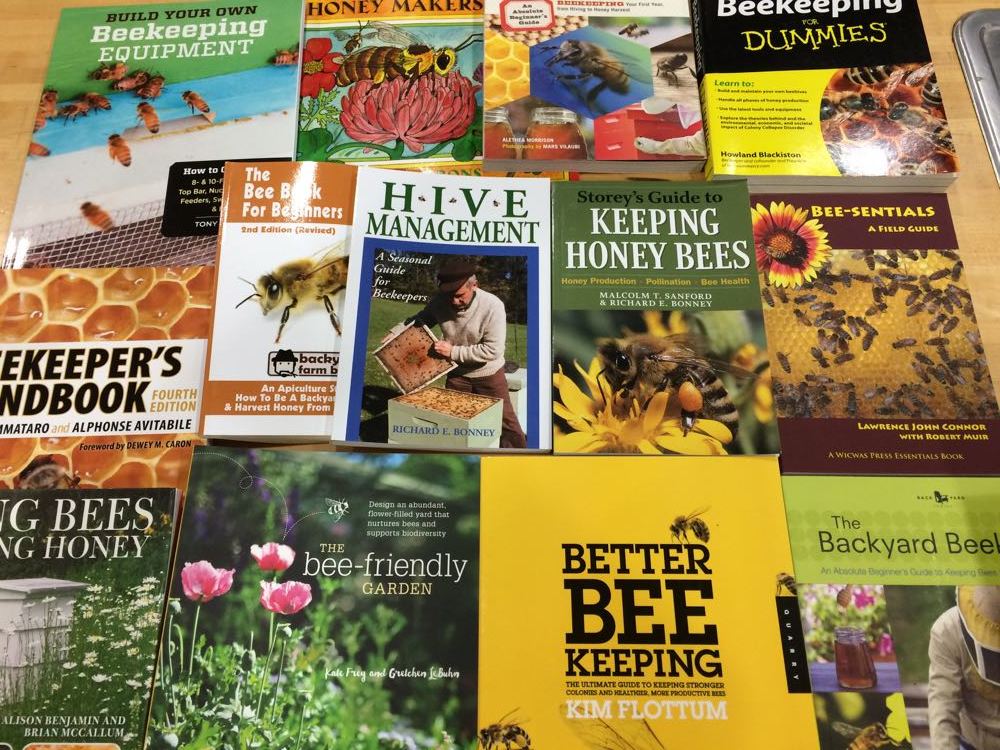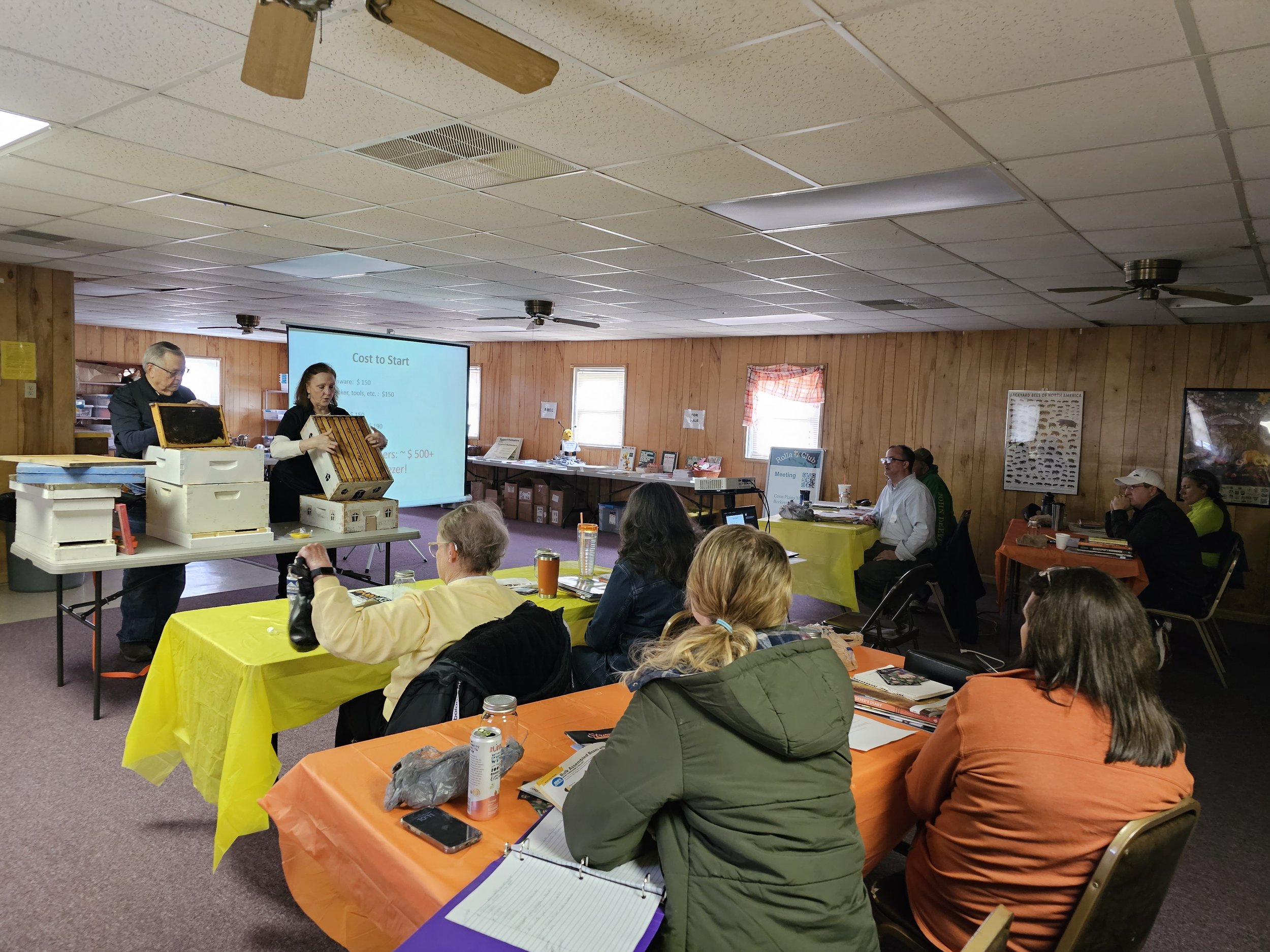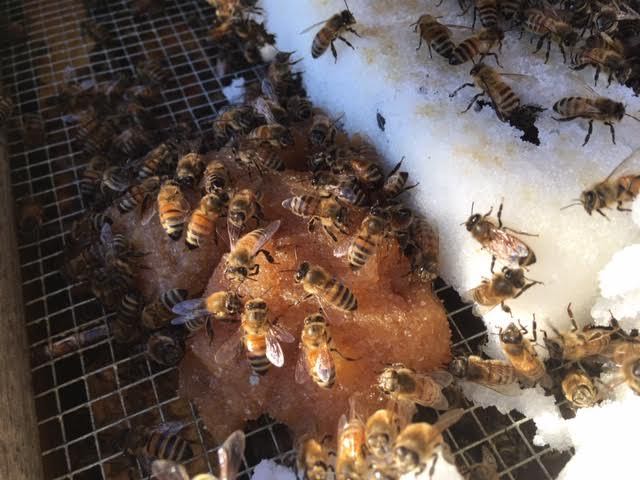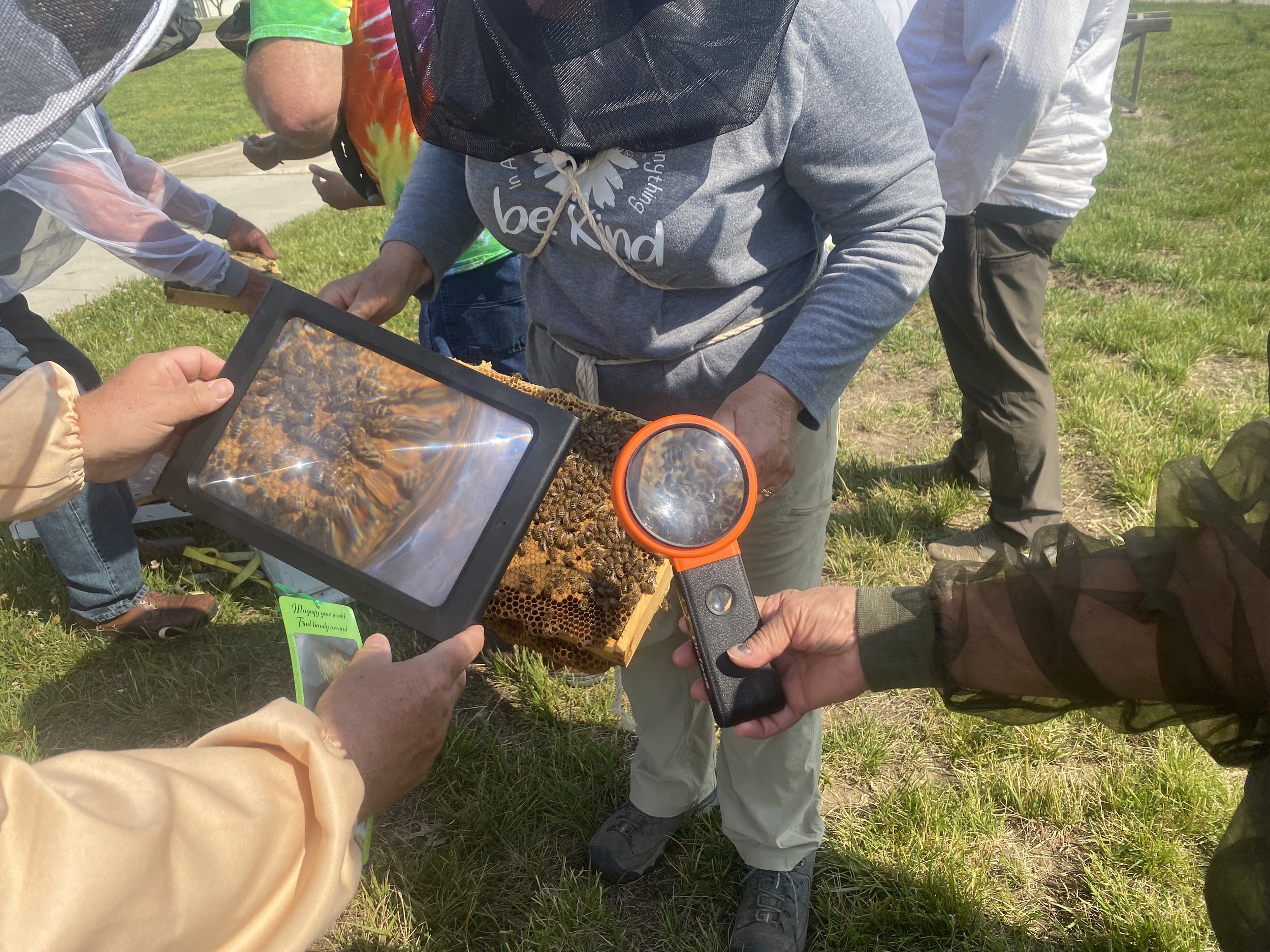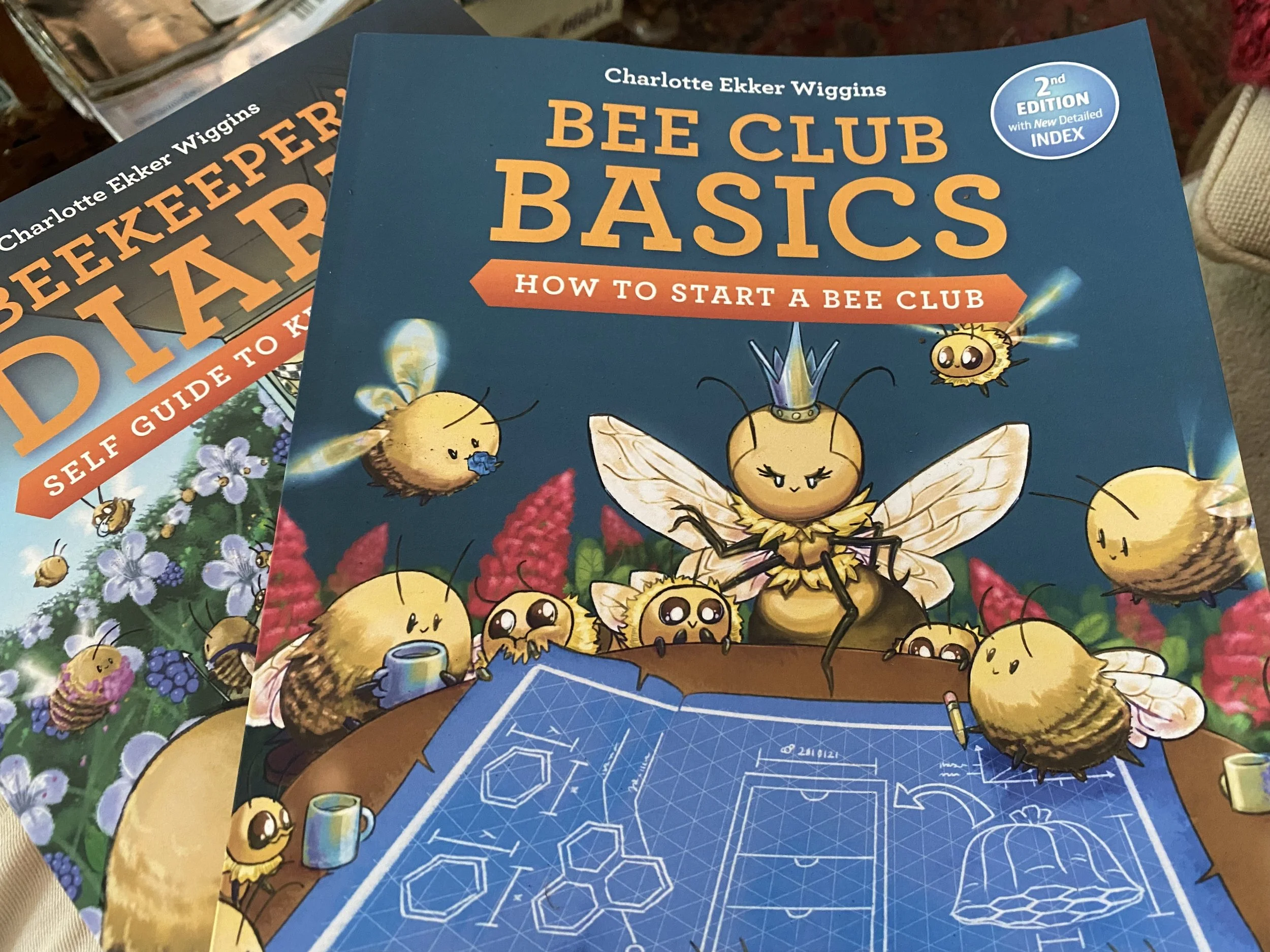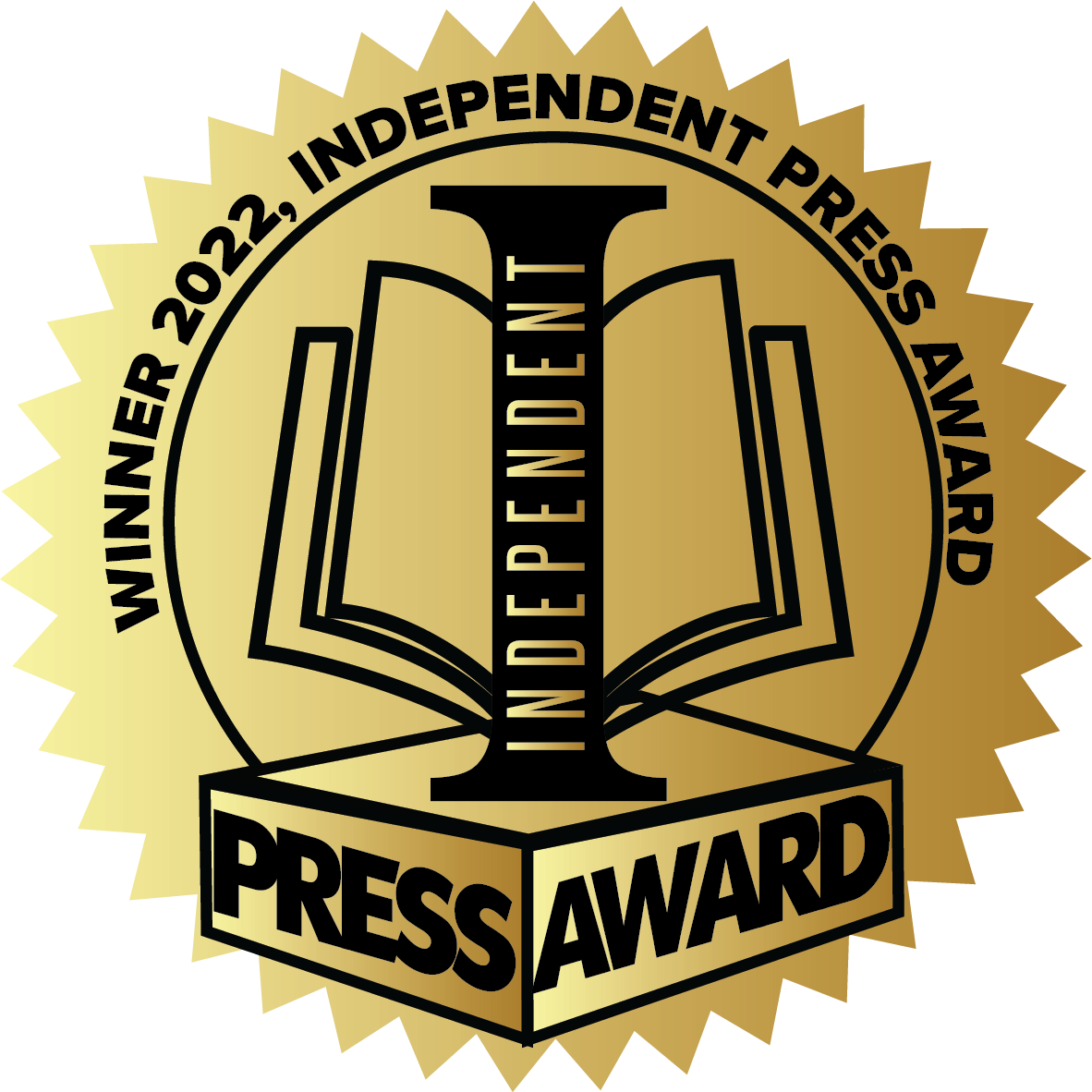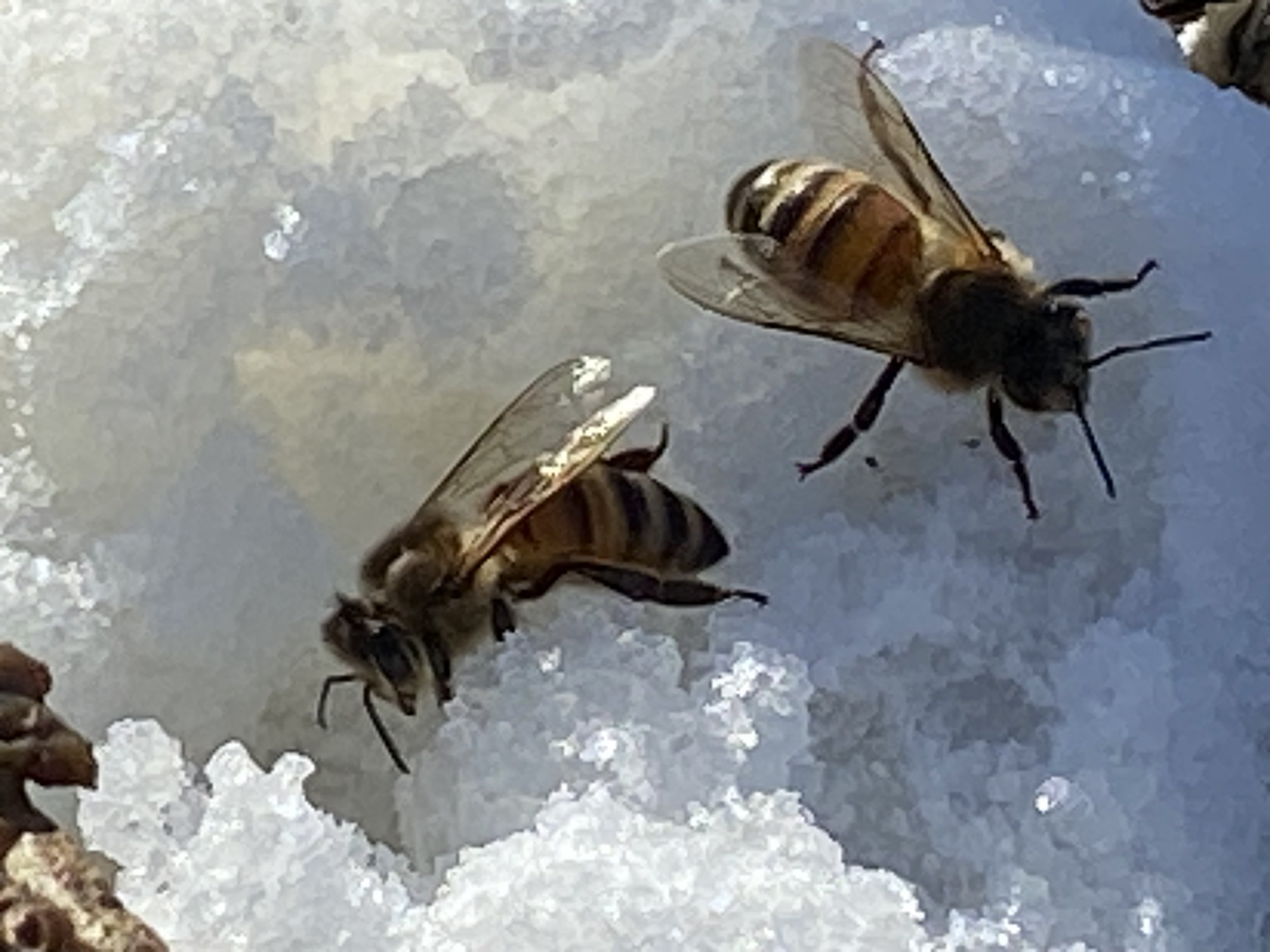Donated Beekeeping Books
/Rolla Public Library Director Diana Watkins takes a peek at beekeeping books donated by Rolla Bee Club, and my bee buddy, David Draker.
Donated Beekeeping Books
One of the most frequently-asked questions I get, both locally and through Missouri State Beekeepers Association, where I serve as the answer lady, is how to get started in beekeeping.
The answer is, start attending local beekeeping club meetings and reading. Like any specialty, beekeeping has a language all of its own and to understand what experienced beekeepers are saying, it is helpful to know what the different parts of a hive, and bee, are called.
When I started beekeeping, I read everything I could get my hands on. I still read, and I have a pile of books ready for winter reading. The days of raising bees in a skep - a romantic idea that was deadly for bees - or placing a hive on the back forty and not worrying about it are gone, today bees have a lot of challenges. To be a good beekeeper, one must become an amateur biologist and stay on top of current research.
To that end, my bee buddy David Draker and I did an inventory of what beekeeping books were available at our local library. We then compared notes on what books we had each read, and liked, and sampled books recommended to us.
After getting the suggestion that people wanted to have access to borrow beekeeping books, we worked with our local public library to donate a selection of our favorite beekeeping books, from a book for children about bees and how to build your own beekeeping equipment to our very own "go-to" book, the Beekeeper's Handbook:
The selection of beekeeping books that will soon be available on loan from Rolla Public Library.
The idea is for beekeepers to be able to sample a variety of beekeeping books and then decide which ones they need for their home library. If someone is keeping bees for honey, for example, they are going to have a different focus than someone keeping bees for pollination.
Having a variety of beekeeping books also introduces potential beekeepers to a range of advice and information, something they will find very prevalent when talking to beekeepers. The joke is ask three beekeepers a question and you will get five different answers. There's a good reason for that, it depends on why one is keeping bees but it can be confusing to beginning beekeepers.
Proceeds from our local club's book sales, and donations, paid for the books. The library will be adding a book plate on the front of each book marking our donation.
We hope these books will help beekeepers on their fascinating, and challenging, journey of keeping bees.
Do you have a favorite beekeeping book?
Charlotte


